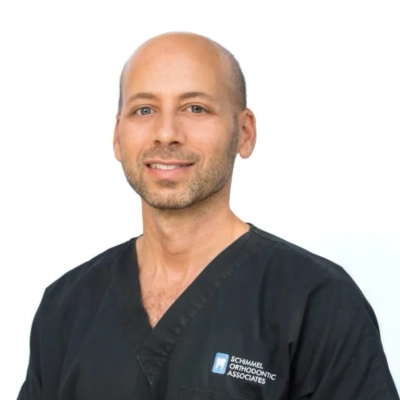X Valuable Lessons from Dental Practice Owners for Successful Transitions
Dental practice transitions can be complex, but learning from experienced professionals can make the process smoother. This article presents valuable insights from successful dental practice owners who have navigated the challenges of transitioning their businesses. By sharing their expertise, these industry leaders offer practical advice for dentists looking to buy, sell, or transition their practices effectively.
- Build Trust Through Community Engagement
- Prioritize Ethical Practice and Transparency
- Honor Legacy While Embracing Necessary Change
- Protect Yourself with Legal Expertise
- Utilize Demographic Reports for Practice Success
- Leverage Goodwill to Boost Patient Referrals
Build Trust Through Community Engagement
One enduring lesson I've learned in developing this practice is the strength of community and trust. Having grown up with inspiration from family doctors, I've always kept community in focus. That's why, in tandem with clinical care, we connect with Northern Virginia through service, such as at the Northern Virginia Dental Clinic and supporting local initiatives like oral health goody bags for Good Sports of Arlington.
These efforts build visibility and, more importantly, trust. When community members see you're invested beyond the clinic, they refer friends, families, and neighbors. As the practice earned recognition from Top Dentist awards to neighborhood favorites, it's that foundation of trust and presence that helped those honors become meaningful reflections of community appreciation.
For those entering practice, my advice is to prioritize community outreach. Volunteer, sponsor, and get involved. It makes your brand more human, fosters goodwill, and organically establishes you as a go-to provider, particularly in a new community.
Prioritize Ethical Practice and Transparency
From the very beginning, I understood that ethical practice is non-negotiable. Not all patients need dental implants, even if they request them. My primary concern has always been to recommend treatments that genuinely benefit the patient. Over time, I discovered that honesty builds trust more effectively than advertising or cutting-edge technology. By communicating with patients to ensure they understand their options and the reasons behind my recommendations, we establish long-term relationships based on integrity.
Another crucial lesson was that transparency should also extend internally. Keeping our team informed about patient care, treatment plans, and practice values makes a significant difference. When the team is well-informed and motivated, patients feel more confident, and outcomes improve. Consistent care in every interaction is what transforms a good practice into an exceptional one.
For dentists embarking on a practice transition, I would emphasize that trust is essential for success. Being transparent about limitations, timing, and fee structures establishes clear expectations and prevents unnecessary conflicts. Patient satisfaction increases when honesty is integrated into all interactions, and that reputation becomes an effective catalyst for sustainable growth.

Honor Legacy While Embracing Necessary Change
Taking over my father's orthodontic practice was one of the most rewarding and humbling experiences of my career. It came with a built-in sense of pride and responsibility — not only was I stepping into a leadership role, but I was continuing a legacy that had been built over decades of care, trust, and reputation in the community.
The most valuable lesson I learned through that process was this: honor the legacy, but don't be afraid to evolve.
When I first joined the practice, I spent about a year working side by side with my father. It gave me an invaluable opportunity to understand how he built such a loyal patient base and strong team. His approach was personal, consistent, and rooted in genuine care. I quickly saw why so many families had trusted him with their orthodontic care for years.
But as I settled into the rhythm of the practice, I also started to notice the limitations — especially in the physical space. The office, while full of history and familiarity, hadn't kept up with the times. Patient expectations were changing, technologies had advanced, and we were simply outgrowing what the old space could offer in terms of efficiency and experience.
After much thought (and more than a few hard conversations), I made the decision that we needed to move the practice to a more modern facility — still within the neighborhood, so we could retain our community roots, but with the infrastructure to support the kind of practice I envisioned for the future.
This wasn't an easy decision. My father had been in the same location for over 20 years. That office held countless memories — for him, for our staff, and for our patients. But ultimately, growth requires change. And thankfully, he supported the move and recognized that evolving the practice didn't mean letting go of its heart — it meant giving it room to thrive.
For others going through a similar transition — especially those inheriting a family practice — I'd offer this: you don't have to replicate your predecessor's way of doing things, but you do need to understand and respect what made their approach successful. Build on that foundation with clarity and vision. Let your team and your patients see that the core values remain, even as the delivery evolves.
Protect Yourself with Legal Expertise
If you are taking over or starting a practice, remember this: contracts don't protect you, lawyers do. Dental school trains you to be a clinician, but ownership requires you to be an operator. And if you try to run a for-profit office like a charity, you won't last.
I joined a venture capital group early in my career to get into ownership. At first, things went fine. We worked together for a couple of years. Then they decided the venture was not printing them enough money and wanted out. They tried to sell it to me for $600,000. When I declined, they sold it for $60,000, one-tenth of what they asked me. After the sale, I started receiving calls from bill collectors at my new office. That is when I discovered $40,000 worth of clear aligner cases had been run through the practice without being paid for. Because those prescriptions were in my name, the entire debt was left with me.
That experience taught me that contracts do not protect you. Lawyers do. Not AI. Not Google. A skilled attorney can tear apart the fine print, catch one-sided clauses, and prevent you from being trapped in situations where someone else profits and you are left holding the bill. If I had not involved my attorneys, I would have been stuck paying $40,000 for work the business had already profited from.
If you are entering business ownership, leave behind the habit of free fixes and "one-time" favors. For-profit practices are not charities, and you cannot afford to run them like one. Insurance already takes nearly half of your revenue. If a patient cannot afford treatment, remember you are not their financial advisor. Your job is to recommend the best long-term care, not the cheapest short-term patch.
Dental school trains you to be a clinician. Ownership requires you to be an operator. You must understand cash flow, contracts, insurance, and how to protect yourself from fraud and embezzlement. Stop doing "hero" dentistry to save someone money with a temporary fix. They will forget your warning when it fails and come back angry. Yes, you will occasionally do no-charge dentistry to resolve an issue. That is part of reality. But do not build your practice on discounts or giveaways. Protect your value. Protect your margins.
If you are stepping into ownership, here is my advice: hire a lawyer, know your numbers, and run your practice like a business. Clinical skill keeps patients healthy. Business skill keeps your doors open.

Utilize Demographic Reports for Practice Success
I have been an owner of two dental practices. The first one I bought as an existing practice and exited with a profit when I had to relocate. The second one I started from scratch and built the patient base myself. The most valuable lesson learned from both practices is the importance of getting a professional demographic report prior to establishing or buying a dental practice. This data provides valuable insights into the patient base, like income levels, existing dental practices in the vicinity, and major employers in the area. It allows a doctor to tailor the practice size, buildout expense, and offer services that align with the needs of the local patient base. For example, being in an area with large employers allows the practice to have a steady stream of patients with PPO insurance plans, or being in a high-income area is essential if a dentist wishes to have an implant or cosmetic-focused dental office.
Leverage Goodwill to Boost Patient Referrals
Goodwill is powerful. While you can charge for every service, occasionally waiving a small fee as a courtesy for a patient can lead to more patient referrals and overall greater profit.




